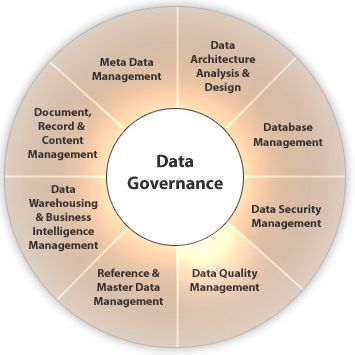Enterprise Data Management

Data quality, master data management, metadata management, data warehousing architecture and data integration: These are all pieces of the data management puzzle, but rare is the enterprise that has assembled these pieces into a cohesive and coherent picture. Get it right and you can count on clean and consistent data from transaction systems and reliable insight from business intelligence.
Enterprise data management. Enterprise Data Management (EDM) Centralize and manage disparate data on a single platform EDM is a data management platform for acquiring, validating and distributing trade, operational, risk, financial and customer data. What is enterprise data management? Sisense’s State of BI and Analytics survey of 500 companies found that 34% of them were increasing their investment in analytics and BI and expanding use cases. Companies looking to do more with data and insights need an effective EDM setup in place.. Simply put, enterprise data management is the process of centralizing, standardizing, and organizing data. Understand structured transactional data and known questions along with unknown, less-organized questions enabled by raw/external datasets in the data lakes. Topics include data strategy and data governance, relational databases/SQL, data integration, master data management, and big data technologies. Enterprise data management (EDM) refers to a set of processes, practices, and activities focused on data accuracy, quality, security, availability, and good governance. Enterprise data takes many forms. Enterprise data is the totality of the digital information flowing through an organization.
Oracle Enterprise Data Management. Adapt and respond to change faster and more effectively by managing your master data, whether migrating an application to the cloud; managing the effects of mergers and acquisitions; or reconciling metadata differences across business functions and applications. Developing and delivering strategy. A proven ability in the application of enterprise data management, program management and continuous improvement methodologies within a distributed organisation. Technical specialist areas it is responsible for (Enterprise Data Management, Data Modelling, Data architecture, Data analytics, data science, data. Anne Marie Smith, Ph.D., CDMP is an internationally recognized expert in the fields of enterprise data management, data governance, enterprise data architecture and data warehousing.Dr. Smith is VP of Education and Chief Methodologist of Enterprise Warehousing Solutions, Inc. (EWS), a Chicago-based enterprise data management consultancy dedicated to providing clients with best-in-class solutions. Oracle Enterprise Data Management Cloud 2020 Implementation Essentials.
According to Gartner, Enterprise Data Management is an absolutely critical component in any organization’s data and analytics initiatives. But, as our recent State of Data Governance research showed, lack of automation is a major obstacle for many leading enterprises. Enterprise data management (EDM) is an organization's ability to effectively create, integrate, disseminate and manage data for all enterprise applications, processes and entities requiring timely and accurate data delivery. EDM is also a concept that addresses the transmission of different data sets within processes and applications that rely. Data management is the process of ingesting, storing, organizing and maintaining the data created and collected by an organization. Effective data management is a crucial piece of deploying the IT systems that run business applications and provide analytical information to help drive operational decision-making and strategic planning by corporate executives, business managers and other end users. Enterprise Data Management We partner with our clients on their data transformation journey, helping then manage, govern and extract value from their data assets The amount of data that organisations generate has increased exponentially over the last few years.
Oracle Enterprise Data Management. Adapt and respond to change faster and more effectively by managing your master data, whether migrating an application to the cloud; managing the effects of mergers and acquisitions; or reconciling metadata differences across business functions and applications. Enterprise Data Management (EDM) is an important process in big data for understanding and controlling the economics of data in your enterprise or organization. Although EDM is not required for big data, the proper application of EDM will help to ensure better integration, control, and usability of big data. EDM is a comprehensive approach to […] Enterprise Data Management (EDM) is the ability of an organization to precisely define, easily integrate and effectively retrieve data for both internal applications and external communication.EDM is focused on the creation of accurate, consistent and transparent content. EDM emphasizes data precision, granularity and meaning and is concerned with how the content is integrated into business. Enterprise Data Management Training and Certification.
Enterprise Data Management Market: Rising Demand for Digitalization. Business operating across industries such as consumer goods, healthcare, manufacturing, and retail are increasingly embracing. 2. Assess your data management capabilities. To help shape the details of an enterprise data strategy, you need to collect baseline information on your organization's efforts to manage data and control its use, said Bill Jenkins, managing partner at Agile Insurance Analytics, a professional services firm that focuses on insurers.Such assessments should examine staffing and skills, processes. Enterprise data management involves several components, including: Data Governance – Data governance refers to the policies and processes used to ensure the integrity, quality, and security of data. It is a close relative of data stewardship and encompasses the guidelines around policy enforcement, overall responsibility, and governance. Oracle Enterprise Data Management Cloud manages business viewpoints, governs changes to them, simplifies data sharing to accelerate cloud deployment, and builds an authoritative source of enterprise information assets.
According to the DAMA International Data Management Book of Knowledge 2.0 (DMBOK2), Data Management is: “The development, execution, and supervision of plans, policies, programs, and practices that deliver, control, protect, and enhance the value of data and information assets throughout their lifecycles.” As stated by Burbank:




















